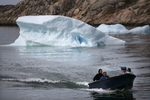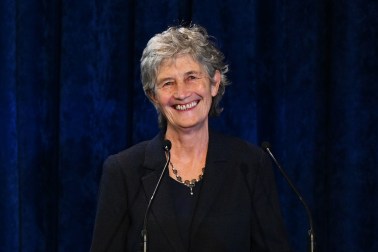 I regularly enjoy Camilla Cavendish’s pieces, but to keep doing so I have to skip over anything she writes about the environment. It spoils it. How can a commentator who normally penetrates conventional wisdom be so taken in by it on this subject? Today, she’s wondering why people aren’t more worked up about climate change. Because so much said about it is demonstrable nonsense, I’d humbly suggest. Now I don’t doubt the planet is warming, but I have five problems.
I regularly enjoy Camilla Cavendish’s pieces, but to keep doing so I have to skip over anything she writes about the environment. It spoils it. How can a commentator who normally penetrates conventional wisdom be so taken in by it on this subject? Today, she’s wondering why people aren’t more worked up about climate change. Because so much said about it is demonstrable nonsense, I’d humbly suggest. Now I don’t doubt the planet is warming, but I have five problems.
1) Inevitability The driver behind the IPCC’s projected rise in greenhouse gas emissions is not by people jetting to France but the poor world getting rich. Not much we could, or should, do about that.
2) Eco-snobbery Within the developed world, the main driver of emissions is the poor starting to consume like the rich do. Taxing them out of the sky or off the roads is a deplorable solution for which we’d need pretty strong justification.
3) Futility What good can it do? I have never seen a study showing how global warming would change appreciably if a carbon-capping plan was introduced. If all Kyoto signatories kept their word (a laughable dream) it would (as one bio-geology professor says) at most “delay changes by two years over the next century”. I have never read any challenge to this assessment. We’re trying to blow away a hurricane, rather than prepare for it.
4) Spin The science is still very immature, yet the climate change priesthood like to mould doubt into certainty. Nigel Lawson calls this “eco-fundamentalism”.
5) Stern Even people like Stern try to hoodwink us. The action he proposes would cost 1% of GDP, he says, and doing nothing would cost 20% of GDP: a false, misleading juxtaposition. A genuine cost-benefit analysis would ask what we get for our 1% of GDP. Would the damage be reduced to 10% of GDP? Or less? Nowhere is this basic question answered in his door-stopping report. All this makes me smell a large, whiskered rat. Nowhere have I found any proof that we can realistically do anything to avoid the problems Camilla outlines. We can, of course, prepare for them – and hope that by 2100 Bangladesh does indeed grow as rich as the Netherlands is today (and, ergo, able to afford some flood defences). But I’m open to persuasion. Enough people I respect are very much taken by the green agenda, so I may well be missing something. Do any CoffeeHousers know what?







Comments